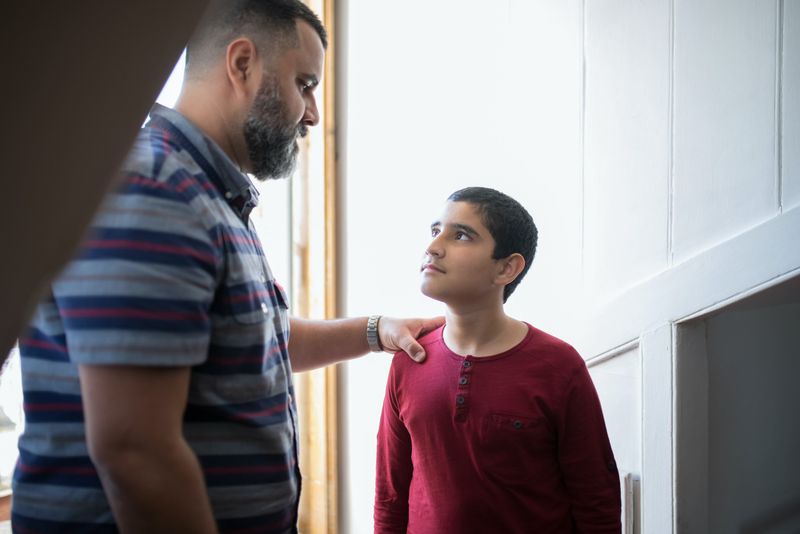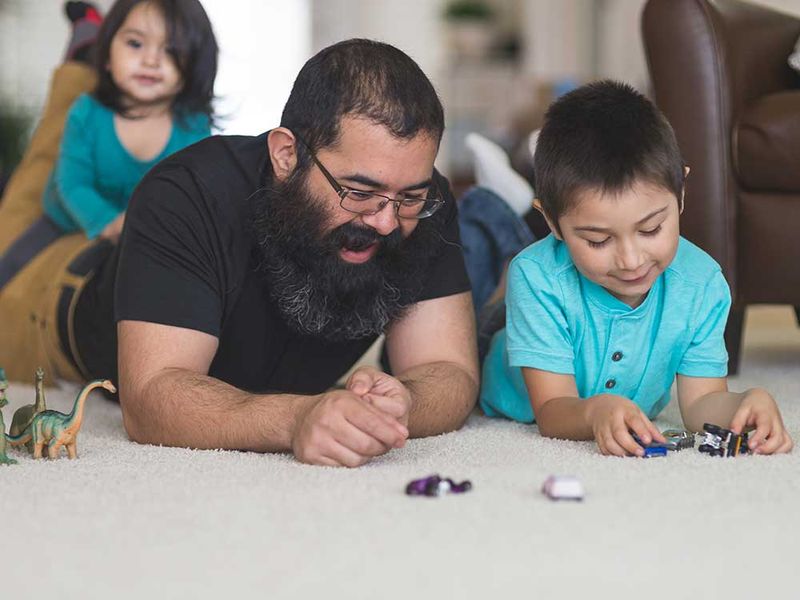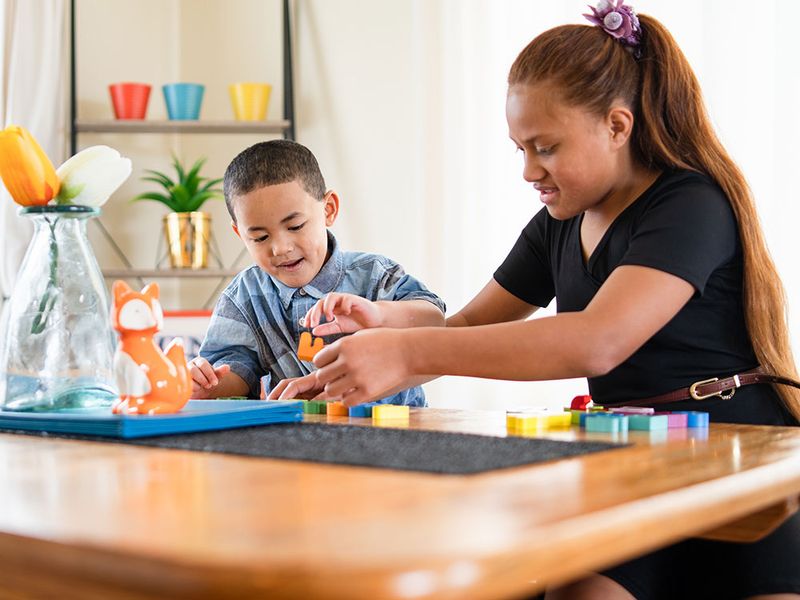Goodbye Toxic Masculinity:19 Tips For Raising Emotionally Intelligent Boys
In today’s progressive world, raising boys to be emotionally intelligent and compassionate is crucial in moving away from outdated stereotypes of masculinity. This guide offers 19 practical and insightful tips to help nurture emotional literacy and empathy in boys.
These strategies focus on everyday actions that parents, mentors, and educators can take to foster an environment where boys understand and embrace their emotions, leading to healthier relationships and a more inclusive society.
By implementing these tips, we aim to create a future where boys feel empowered to express themselves freely and respectfully.
1. Normalize Crying as a Healthy Release—Not a Weakness

Crying is often seen as a sign of weakness, especially for boys. By normalizing crying as a healthy emotional release, we challenge this stereotype. Encourage boys to cry when they need to, reassuring them that it’s okay to express sadness or frustration.
When boys learn that crying is a natural response, they become more in tune with their emotions. This understanding helps them manage stress and cope with difficult situations.
By supporting boys during these vulnerable moments, we teach them resilience and emotional strength. They learn that it’s not about holding back tears but about embracing their feelings honestly.
2. Show Him How to Apologize—And Mean It

Apologizing sincerely is a crucial life skill that demonstrates accountability and empathy. Teaching boys how to apologize genuinely can transform relationships and foster mutual respect.
Start by modeling heartfelt apologies yourself. Show boys that acknowledging mistakes and taking responsibility is a sign of maturity and strength.
Boys who learn to apologize sincerely are more likely to engage in healthy conflict resolution. They understand the importance of repairing relationships and maintaining trust.
3. Talk Openly About Emotional Reactions Without Shame

Creating a dialogue about emotions without shame is vital for emotional intelligence. Encourage boys to discuss their feelings openly, whether it’s joy, anger, or fear.
By talking about emotions without stigma, boys learn that all feelings are valid. This acceptance fosters self-awareness and helps them articulate their emotions clearly.
When boys understand their emotional reactions, they become more empathetic towards others. This openness paves the way for supportive and trusting relationships.
4. Let Him See Adults Handle Conflict With Respect

Witnessing respectful conflict resolution in adults teaches boys how to handle disagreements constructively. Show boys that conflicts can be resolved without aggression or hostility.
When adults model healthy conflict resolution, boys learn valuable communication skills. They understand the importance of listening, empathy, and finding common ground.
By observing respectful interactions, boys are more likely to emulate these behaviors in their relationships, fostering a more harmonious and understanding environment.
5. Validate His Feelings—Even When They’re Messy

Validating a boy’s feelings, even when they’re messy, is integral to his emotional development. Acknowledge his emotions, whether they’re anger, sadness, or happiness, without judgment.
When boys feel heard and understood, they gain confidence in expressing their emotions. This validation helps them navigate complex feelings and fosters emotional resilience.
Encourage him to explore his emotions, ensuring he knows that all feelings are part of the human experience. This understanding builds empathy and emotional intelligence.
6. Encourage Softness, Not Just Strength

Encouraging softness in boys, alongside strength, nurtures a well-rounded character. Highlight the value of compassion and kindness, showing that emotional strength includes tenderness.
Boys who embrace their softer side are more empathetic and understanding. They appreciate the importance of nurturing relationships and offering support.
By celebrating both softness and strength, boys learn to balance their emotions, creating a harmonious blend of resilience and empathy.
7. Let Him Play in Ways That Aren’t Just Competitive

Play is an essential part of childhood, and not all play needs to be competitive. Encourage boys to engage in activities that promote cooperation and creativity rather than just competition.
By participating in collaborative games, boys learn teamwork and communication. These experiences teach them the importance of working together towards a common goal.
Non-competitive play allows boys to explore their interests and develop diverse skills, fostering a sense of inclusivity and mutual respect.
8. Help Him Name His Feelings Early and Often

Teaching boys to name their feelings early and often empowers them to articulate their emotions. This skill is fundamental to emotional intelligence and self-awareness.
When boys can identify their feelings, they become more adept at managing them. This understanding reduces emotional turmoil and fosters inner peace.
By regularly practicing this skill, boys gain confidence in expressing themselves. They learn that emotions are a natural part of life, not something to be feared or hidden.
9. Praise His Kindness as Much as His Achievements

Praising a boy’s kindness as much as his achievements reinforces the value of empathy. Acknowledge his compassionate actions, ensuring he knows that kindness is as important as success.
When boys see kindness celebrated, they prioritize empathy in their interactions. This recognition encourages them to act with integrity and consideration.
By balancing praise for kindness and achievements, boys learn that emotional intelligence is a vital component of personal growth.
10. Teach Him to Notice How Others Feel—Not Just How He Feels

Teaching boys to notice how others feel fosters empathy and social awareness. Encourage them to observe and understand the emotions of those around them.
When boys recognize the feelings of others, they build stronger connections. This awareness leads to more meaningful and supportive relationships.
By cultivating empathy, boys learn to balance their own emotions with those of others, creating a more compassionate and understanding community.
11. Show Him Boundaries by Modeling Your Own

Modeling personal boundaries teaches boys the importance of respecting their own limits and those of others. Demonstrate how to set and maintain healthy boundaries in various situations.
When boys understand boundaries, they learn self-respect and mutual respect. This knowledge helps them navigate relationships with integrity and clarity.
By observing and practicing boundaries, boys develop a strong sense of self, ensuring they grow into respectful and considerate individuals.
12. Let Him See You Regulate Your Own Emotions

Demonstrating emotional regulation in front of boys teaches them how to manage their emotions effectively. Show them techniques like deep breathing, mindfulness, or taking a pause.
When boys see adults regulating emotions, they learn valuable coping strategies. This skill enhances their emotional resilience and adaptability.
By modeling emotional regulation, boys gain confidence in handling their feelings. They understand that emotions can be managed constructively, promoting mental well-being.
13. Explain the Difference Between Power and Respect

Understanding the difference between power and respect is essential for boys navigating relationships. Engage boys in discussions about these concepts, highlighting respect’s foundation in mutual understanding.
Boys learn that true respect is earned through empathy and kindness, not authority or fear. This understanding fosters healthy relationships and self-worth.
By distinguishing power from respect, boys develop a more nuanced view of leadership and influence, ensuring they pursue relationships built on trust and integrity.
14. Help Him Process Disappointment Without Blaming

Processing disappointment without blaming is a vital skill for emotional growth. Encourage boys to reflect on setbacks and express their feelings constructively.
When boys learn to handle disappointment positively, they develop resilience and perseverance. This perspective helps them focus on solutions rather than assigning blame.
By guiding boys through disappointment, they gain confidence in overcoming challenges. They learn that failure is a part of life, not a reflection of their worth.
15. Teach Him That “No” Is a Full Sentence—To Hear and to Say

Teaching boys that “no” is a complete sentence empowers them to assert their boundaries and respect others’. Emphasize the importance of both saying and hearing “no” with understanding.
Boys who understand this concept develop strong self-esteem and mutual respect. They learn that consent and boundaries are crucial in all relationships.
By practicing this principle, boys gain confidence in expressing their needs and respecting those of others, fostering healthy and respectful interactions.
16. Let Him Talk Through Hard Moments Without Fixing Them

Allowing boys to talk through hard moments without immediately fixing them teaches them emotional resilience. Encourage them to express their challenges, offering support rather than solutions.
When boys work through their emotions, they build problem-solving skills and self-awareness. This process fosters independence and confidence.
By being a supportive listener, you help boys navigate their feelings, empowering them to face challenges with strength and empathy.
17. Teach Consent as a Daily Practice

Teaching consent as a daily practice instills respect and understanding in boys. Show them that consent is about mutual agreement and respect in all interactions.
When boys understand consent, they develop healthy boundaries and trust. This knowledge builds a foundation for respectful relationships throughout their lives.
By integrating consent into daily life, boys learn to value others’ autonomy, creating a culture of respect and empathy.
18. Talk About Gender, Emotions, and Empathy Regularly—Not Just Once

Regular discussions about gender, emotions, and empathy help boys navigate societal expectations and foster inclusivity. Make these conversations a part of everyday life, not a one-time event.
When boys engage in these discussions, they gain a deeper understanding of themselves and others. This awareness encourages acceptance and empathy.
By normalizing these topics, boys grow into considerate individuals, ready to challenge stereotypes and embrace diversity.
19. Remind Him That Being a Good Man Starts With Being a Good Human

Instill the idea that being a good man begins with being a good human. Encourage boys to act with integrity, kindness, and empathy in all aspects of life.
Boys who prioritize humane values develop strong moral character. They understand that true masculinity is rooted in compassion and respect for others.
By emphasizing this principle, boys grow into individuals who value inclusivity and justice, contributing positively to their communities.







